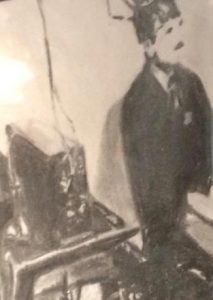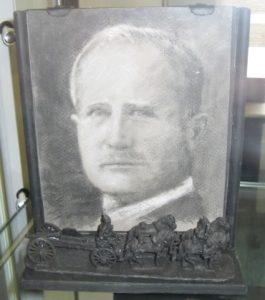WAVECRAFT: Messages from an unknown world



90 years ago Hans Berger, a provincial German psychiatrist with little physiological experience, rudimentary equipment, and recording from the scalp, claimed the brain was electrically pulsating around 10 times a second. He was widely ridiculed; it seemed inconceivable that 90 billion neurons would do such a thing. 5 years later, Edgar Adrian, a Cambridge professor with access to state of the art electronics, confirmed the observation and the science of electroencephalography took off. A 25-year-old student of Adrian, William Grey Walter, set up the first clinical EEG labs in the UK, at the Maudsley and Maida Vale hospitals. He was to become a leading light in that field, and others.

Berger was a quiet, correct, punctilious, conservative who avoided the limelight, Walter a leftist bohemian who courted publicity for himself and his subject. They made a string of important discoveries yet neither was fully accepted by their country’s academic establishments in their lifetimes.

Berger worked as the Nazis rose to power, Walter worked against a backdrop of World War 2 and the Cold War.
This exhibition tells their story through made and found objects and images, text and archive material.
1st May -1st August 2018, Institute of Neurology Museum and Archive, University College London, Queen’s Square, London.
1st August-1st November, Library and Archive, Royal Society of Medicine, 1 Wimpole street, London.
An essay based on one aspect of the story is available here WAVECRAFT- DESTINATION NORWAY
An exhibition booklet of the artwork, in pdf form, is available here: wavecraft artwork
A booklet of the artwork and exhibition text is here:wavecraft artwork and text
Grey Walter in court:
THE FIRST APPEARANCE OF EEG EVIDENCE IN A UK LAW COURT: A cautionary tale.
Psychiatric Bulletin, January 2023.
https://www.cambridge.org/core/journals/bjpsych-bulletin/article/first-appearance-of-eeg-evidence-in-a-uk-court-of-law-a-cautionary-tale/9D97D5564586762599DBA680D61C994D#:~:text=Electroencephalogram-based%20evidence%20was%20accepted%20in%20a%20UK%20law,and%20parallels%20with%20more%20recent%20technologies%20are%20highlighted.